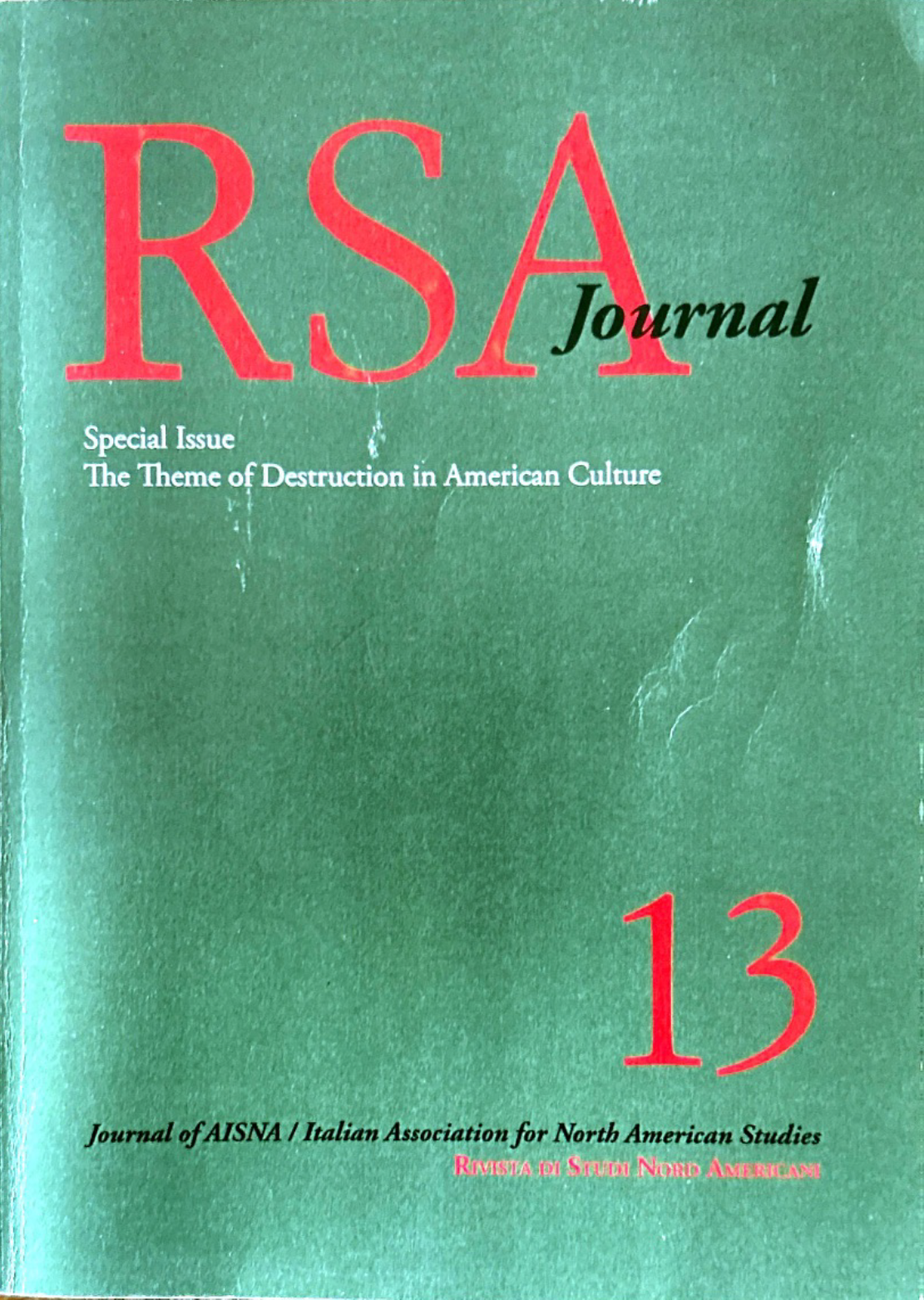Landscapes of Destruction
Reading Kurt Vonnegut's “Breakfast of Champions” with an Eye to Walt Whitman
DOI:
https://doi.org/10.13135/1592-4467/8833Parole chiave:
American culture, decay, landscapes of destruction, American mythAbstract
Breakfast of Champions, first published in 1973, is probably one of Kurt Vonnegut's most destructive and nihilistic works. Its declared blueprint is to present the reader with an endless catalogue of cultural monstrosities, either contemporary or proven by now to be timeless. At the end of this subtractive process American culture is reduced to a tabula rasa where nothing seems to be salvageable. Here, Vonnegut gives the impression of running an opposite course to the one Walt Whitman laid out in Leaves of Grass. While developing a new literature for a new country, the "good gray poet" used the former to celebrate the latter, and wove together long lists of things and human types, as if he planned to compile a comprehensive inventory ofall America's gifts, virtues and assets. In Breakfast of Champions' destructive context we're led to believe that from the very beginning America's promise was a kind of a fraud, and, why not, that Whitman's work was just a long redundant piece of advertisement ante litteram. Although Breakfast of Champions may seem like a desperate novel on a helpless country, I believe that it is not entirely correct. It can be read, on the contrary, as another example ofhow even the most negative constructions and critiques of America seem unable to disown and repudiate it completely. Most of the dissent groups active between the Fifties and the Seventies were inspired in different degrees by a clean nostalgia for the "American dream." Counterculture itself has been presented as "a kind of reform movement, trying to revive a decayed tradition once important to our civilization." The painful awareness of such a "decay" is a factor contributing to Breakfast of Champions' sustained, unrelenting anger. Vonnegut attacks the American myth as a disillusioned believer, and with the ardor of a betrayed lover.
##submission.downloads##
Pubblicato
Fascicolo
Sezione
Licenza
RSAJournal applicherà una licenza CC BY 4.0 a tutti i suoi contributi a partire dal numero 37 (2026). Le pubblicazioni precedenti sono regolate dalla licenza CC BY-NC-ND.



